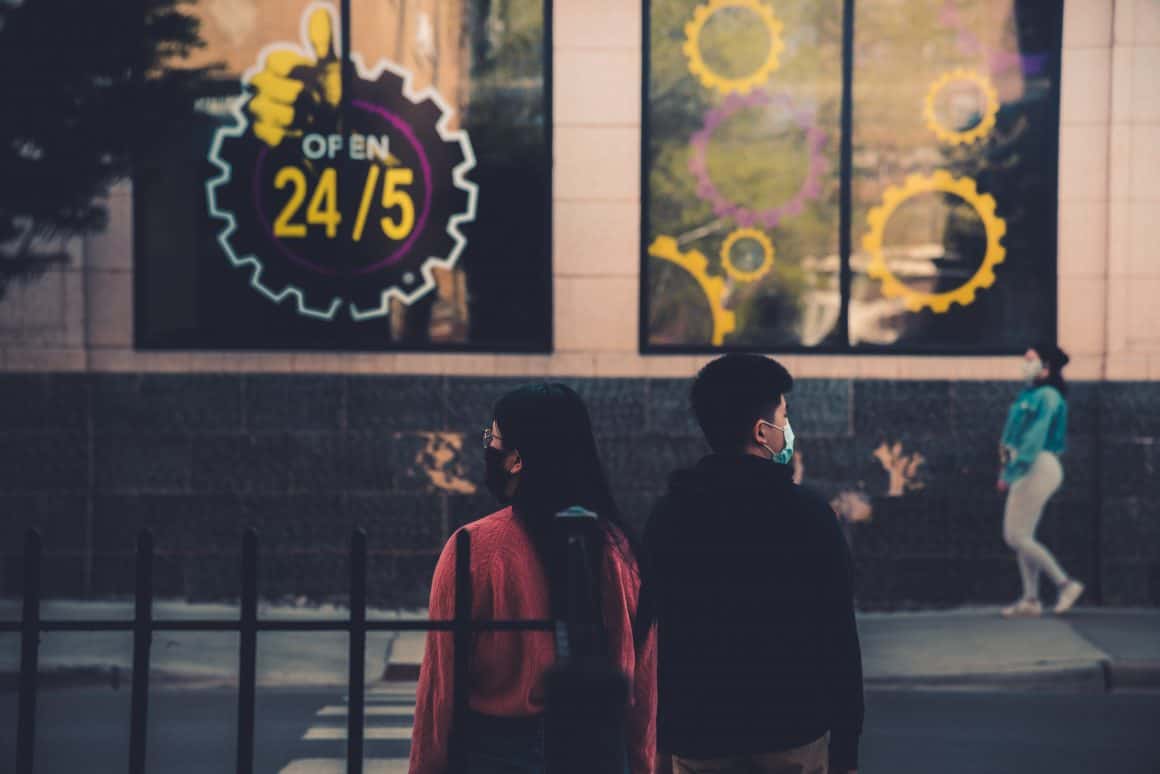What you’ll learn in this article:
- Are face masks effective in preventing the spread of Covid-19?
- Why are some in the West hysterical over mask-wearing when it is normal in Asia?
- Should face masks be mandatory?
- How the World Health Organization (WHO) and the U.S. Centers for Disease Control and Prevention (CDC) have evolved on face mask recommendations
- What are the best masks to wear?
As we pass the devastating milestone of more than 13 million global cases of Covid-19, it is with frustration and sadness that I reflect on my February 2020 article on the do’s and don’ts of face mask use. As an immunologist, epidemiologist and virologist, and having extensively researched and developed face masks and respirators, and with a plethora of scientific publications available on the topic, it is abundantly clear to me that mask-wearing by everyone will significantly reduce the spread of Covid-19. But unfortunately, the solid science supporting face mask use is being twisted by political agendas and rejected by certain people, undermining extensive public health efforts. The outcome has been soaring rates of new infection, hospital overload, and unnecessary deaths. Our world is turning into a state of disorganized and frightening chaos.

See related article: Mask Hysteria: Face mask do’s and don’ts for the coronavirus
Shirking face mask-wearing: a problem only in the West
From early on in this pandemic, many Western nations shirked face mask-wearing, considering it to be something that “only Asians do,” or alternatively, a violation of their civil liberties. Witness the scenes of lockdown protests, and more recently, the anti-racism demonstrations around the world — all mass gatherings with people face-to-face and cheek-to-cheek — many without face masks or any other mouth and nose coverings. And the cases of Covid continued to rise steeply. Health authorities such as the World Health Organization (WHO) and the U.S. Centers for Disease Control and Prevention (CDC) did not help the cause. For months into the coronavirus crisis, neither of these health authorities encouraged the use of masks, with the WHO going so far as to claim that masks could not protect the general public, and furthermore, that use by the public would deny availability to critical front-line health care workers. Intended or not, in the first weeks and months of this pandemic, these ill-advised guidances added to the confusion and divisiveness surrounding face masks.
However, the incontrovertible research and data on face masks beats any stigma over their use. Face masks work, and they should be mandatory, with fines or other penalties for those who refuse. The United States now has the largest numbers of Covid-19 infections globally, suffering the consequence of the huge pushback against wearing face masks or facial coverings in spite of what should have been public awareness of the terrifying ease of community transmission. In the face of the first wave, restrictions began easing in many U.S. states, which together with summertime holiday-making has seen Covid-19 infections in sunbelt states such as Texas, Arizona and Florida spiking again severely in conjunction.
A plethora of Covid-related scientific studies have taken place in 2020, with key spirometry studies showing that droplets from the mouth or nose of a Covid-19-infected person can spread up to 8 meters, or more than 26 feet. Other research has recently confirmed that wearing face masks can significantly and effectively reduce Covid-19 transmission. Yet the use of masks has up to now, and still remains contentious — but only in the West.
In Asia: divided by politics, united in face masks
In Asia, no matter what one’s political stripes, there is consensus — aligning with science — that wearing a face mask is being responsible to others while also being smartly self-protective. Even in Hong Kong, where political divides and mass protests have devastated the territory for over a year, no matter where a person stands on politics, everyone is in agreement over face mask use.

Hong Kong, a territory of 7.4 million people, has suffered only eight Covid-19 deaths to date despite its proximity to the epicenter of the first outbreak, versus the devastation in U.S. states like California, Arizona, Kentucky and Florida. These states have much lower population densities than Hong Kong, but experienced exponentially more cases and deaths from this preventable virus. Yet somehow a simple rectangular piece of material is being mistaken for and abused as a political symbol. People are dying, and the global economy has been destroyed — this is not the time for debate.
Early on in this pandemic, a complicating factor was that legitimate face masks were difficult to source.
Since its first appearance in the mainland Chinese Province of Hubei, the Covid-19 pandemic exploded with a velocity that has outpaced the ability of healthcare systems and medical supply industries to produce enough personal protection devices required to control the spread of the virus — in particular face masks. At first, when the virus was a local epidemic, emerging in China and then spreading to Hong Kong, legitimate surgical face masks (which must be marked with an “ASTM-F2100” or equivalent regulatory approval labelling) became impossible to find. Counterfeit surgical facemasks and sub-par masks of a variety of materials and styles flooded the market. Most of these products did not provide calculable protection against any viruses.
Following an initial period where demand outpaced supply, face masks became available again, and the global demand continues to remain high. However, with a plethora of companies manufacturing masks at warp speed, and with such rapid use and disposal, it remains difficult if not almost impossible to verify the legitimacy of medical grade face masks. Perhaps blockchain technology will one day be able to help verify the origin, authenticity and quality of face masks.
WHO and CDC were also behind the curve
In the meanwhile, even though there were exponential transmission of global cases of Covid-19 nearing 3 million by April, the WHO remained resolutely against the use of medical face masks by the general community, indicating that public consumerism would deny front-line hospital and medical staff. The CDC — the public health authority for the world’s wealthiest country — ignored the nationwide face mask shortage and instead recommended that the public construct their own basic cloth face coverings to reduce virus spread. This feeble advice was all the more disappointing as the United States has had a long-standing Strategic National Stockpile designed exactly for key health emergencies like a pandemic.
Only on June 5, did the WHO release very tardy guidance that face masks should be worn in public.

Increasing mask use around the world
Although not ideal, with the cases increasing exponentially, if genuine surgical face masks or N95s cannot be found, then any face covering is certainly better than none at all. Masks simply create barriers between each of us, and maintain your droplets within your own personal space. To this point, it has been heartening to see worldwide media images of the general populations emerging from countries that were initially severely hit by Covid-19 — Italy and Spain as examples — now wearing surgical masks and N95 respirators.
To emphasize: just wearing face masks is not enough. With such an extremely high prevalence globally, yet invisible to the eye, this virus can now only only be challenged by adopting three inextricably-bound health behaviors: masks, social distancing, and diligent hand-washing — umbrellaed by dedicated community testing.
This pandemic is not anywhere close to being over, and as a global crisis not yet controlled with drugs or a vaccine, face masks must be universally mandatory by law or by social pressure.
Mask-wearing in public is now compulsory in more than 100 countries globally, including Singapore and Qatar, with large fines for those who do not comply. Wearing masks and face coverings has also been recommended by multiple international airlines including Cathay Pacific, and mandated by all major U.S. airlines for passengers and crew since mid-May.
Wearing a mask is such a simple thing to do, and for each of us marks a sign of solidarity with our global community, as well as respect for the health workers who have worked tirelessly to care for sick and dying patients. Over half a million people have died of Covid-19 to date, and the death toll will continue to rise exponentially. Masks are cheap and non-invasive, and wearing them in public should be mandatory, with heavy consequences for those who shirk good health behaviour.
It is no more of a request to wear a face mask than wearing any other item of clothing in public. We must all realize that our individual contributions can help slow this pandemic. The sooner we embrace adult accountability, and adopt these simple behaviors as the new normal, the sooner the world can begin to turn with some degree of normality.




